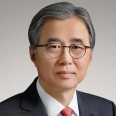*This is an opinion expressed in the Chosun Ilbo Op-ed on July 11, 2020.
Watching how South Korea’s neighbours are treating South Korea, I feel that South Korea has become an easy target. South Korea’s neighbours look at South Korea without even an ounce of fear, let alone respect.
When the Cold War ended after 45 years, American and Soviet citizens were asked how they had seen each other throughout the Cold War. Americans responded that they saw the Soviet Union with fear and contempt while the Soviets said that they saw the United States with fear and respect. It turned out that what citizens in both countries had in common was a sense of fear about the other side. This showed that while it might be desirable to be respected, it is necessary to ensure that the other side at least fears its enemy in order to preserve peace.
How do we see North Korea and how does North Korea see us? When we look at North Korea, I think we feel fear and contempt. We fear it because it is a closed regime with nuclear weapons. The fear we have towards North Korea may thus be greater than what Americans felt towards the Soviet Union. How, then, does North Korea see us? Most North Koreans may admire us because we are free and prosperous. The North Korean regime may envy South Korea but publicly despises. This is evident in North Korea’s actions in blowing up the inter-Korean Liaison Office which had been built using our taxpayers’ money. It would be nice to be respected by the North Korean regime, but the problem is that we cannot make them fear us.
The Cold War was an era of fierce arms race but it ended without war. It was not the benevolence of American and Soviet leaders but rather the threat of Mutually Assured Destruction. Mutually Assured Destruction prevented the use of nuclear weapons because of the fear that any attempt of first use of nuclear weapons would lead to the destruction of both sides. At the time, the United States had more than 30,000 nuclear warheads and the Soviet Union had more than 40,000 warheads. Even though more than 70,000 nuclear weapons cast an overwhelming shadow of terror over both sides, most Americans did not lose any sleep at night. The Cold War ended without war and left the lesson that only nuclear weapons can deter nuclear weapons.
South Korea is surrounded by a nuclear-armed China, Russia, and North Korea, as well as Japan, which is number one potential nuclear power. None of these countries fears South Korea. North Korea insults and scoffs South Korea by calling South Korean leaders “a boiled cow’s head,” “a frightened dog,” and “a retard.” China wants South Korea to promise not to enter into a ROK-US-Japan military alliance, but how would China respond if South Korea requests China to reconsider the North Korea-China alliance? In July last year, a Russian military reconnaissance aircraft violated South Korea’s airspace over Dokdo, but Russia, on the contrary, claimed that South Korean jet fighters had threatened the safety of the Russian aircraft. Meanwhile, Japan only looks to the United States and ignores South Korea’s security needs intentionally. Prime Minister Shinzo Abe implicitly threatened South Korea in 2014 when he mentioned that, in an emergency, US troops in Japan could not be sent to the Korean Peninsula without prior consent of Japan. In the case of the United States, South Korea’s only ally is dragging out defense cost-sharing negotiations while disparaging South Korea as “a rich country that is ripping off the United States.”
South Korea has the world’s eleventh largest economy and this year’s defense spending exceeded $44 billion, ranking ninth in the world. South Korea has over 600,000 troops and advanced weapons, including F-35 stealth fighters. So why is South Korea treated like a punching bag by its neighbours? It is not because South Korea is physically weak. It is because South Korea’s neighbours think there is nothing to lose by openly provoking South Korea while showcasing their power. In a word, they see South Korea as nothing without the United States.
As an Israeli general once said, “When foreign troops are stationed in a country, it rots the people’s minds.” Maybe it is time we took a hard look at ourselves? When North Korea threatens to turn Seoul into a “sea of fire,” South Korea should remind them that Pyongyang would not survive intact either. South Korea must make every efforts to secure freedom from fear.
When we consider the sheer magnitude of the geopolitics that South Korea lies at the eastern edge of the vast Eurasian continent that connects Russia, China and North Korea, the US military presence in Korea is absolutely critical to South Korea’s security, but we must also try not to loose the will to resolve our own problems. It is only then that the United States will view South Korea properly and treat South Korea as a true ally. We need to seek a minimum level of deterrence and willpower. A nation that is disregarded and challenged by neighbours cannot survive.
* The view expressed herein does not necessarily reflect the views of the Asan Institute for Policy Studies

 Facebook
Facebook Twitter
Twitter